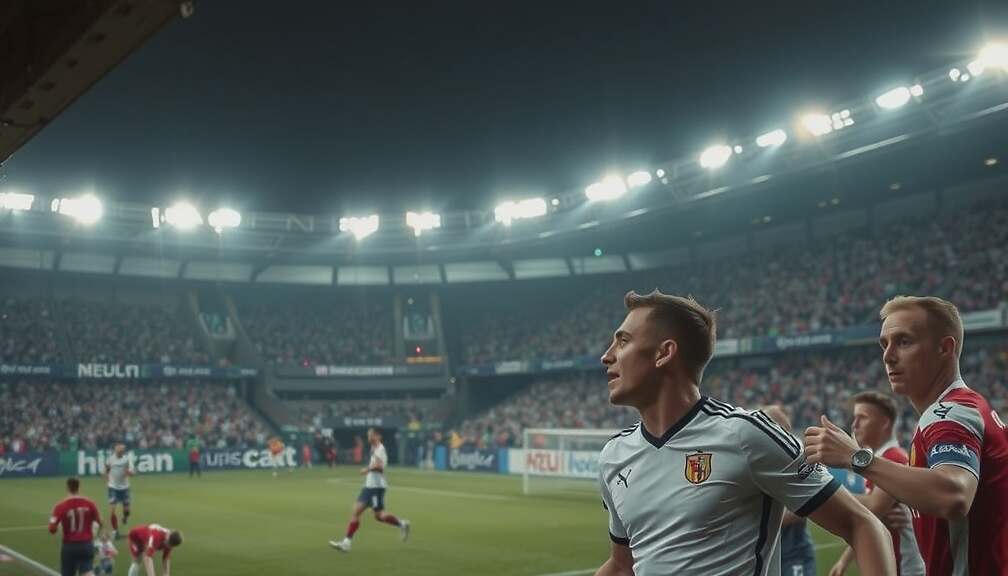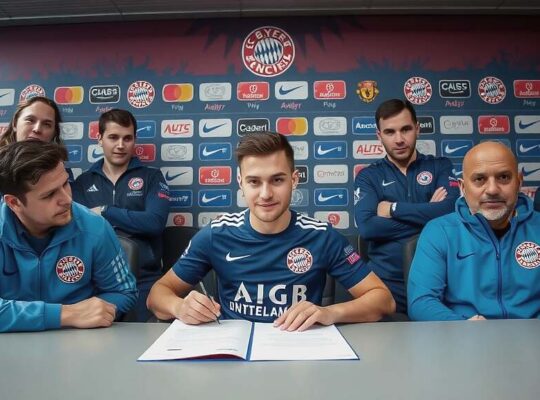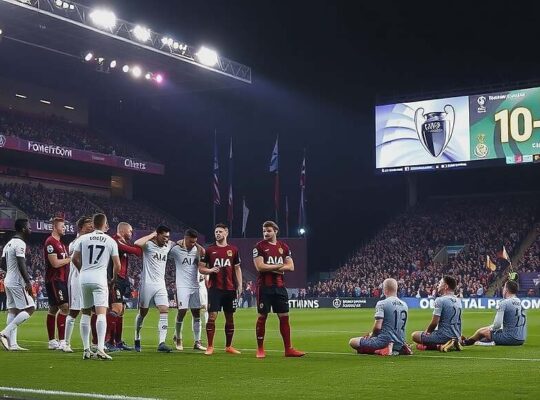The contrasting fortunes of German football’s heavyweights Eintracht Frankfurt and FC Bayern Munich this week have sparked renewed debate regarding the Bundesliga’s competitiveness on the European stage and the differing managerial approaches shaping their performances. While Bayern secured a commanding 4-0 victory over Club Brugge, cementing their position near the top of the Champions League group standings, Frankfurt suffered a humiliating 5-1 defeat against Liverpool, raising serious questions about their tactical resilience and squad depth.
Frankfurt’s initial promise, taking an early lead through Rasmus Kristensen, rapidly dissolved as Liverpool mounted a blistering counter-attack, scoring three goals in a nine-minute spell before halftime. The ease with which Liverpool dismantled Frankfurt’s defense exposed vulnerabilities in the team’s organization and commitment. Critics are pointing to a perceived lack of tactical flexibility and a reliance on individual brilliance, a stark contrast to the more structured approach typically associated with German football.
Bayern Munich, under the guidance of Vincent Kompany, demonstrated a markedly different level of control and efficiency. A goal from Lennart Karl within the opening minutes set the tone for a dominant performance, further compounded by strikes from Harry Kane and Luis Díaz. Nicolas Jackson’s late goal finalized the resounding victory. Kompany’s strategic adjustments and apparent understanding of his squad’s capabilities have allowed Bayern to maintain a strong Champions League presence, a significant divergence from Frankfurt’s current predicament.
This divergence in performance has reignited the broader conversation surrounding the Bundesliga’s ability to consistently challenge for European supremacy. While Bayern regularly represents German football’s ambitions, Frankfurt’s latest setback highlights the gap in quality and tactical sophistication that exists between the top Bundesliga clubs and their counterparts in the English Premier League. The result poses a significant challenge for Frankfurt’s management and raises concerns about their ability to progress further in the competition, prompting calls for a deeper evaluation of team strategy and player recruitment. The current rankings – Bayern in second, Frankfurt languishing in 22nd – graphically illustrate the disparity.












